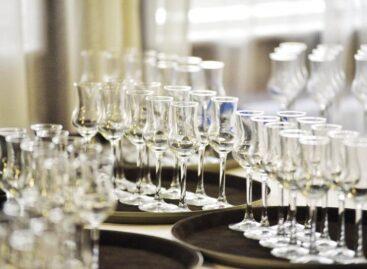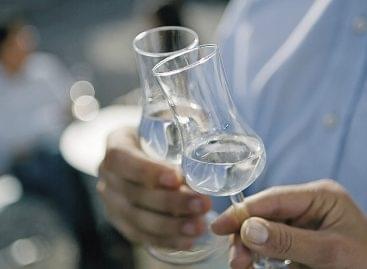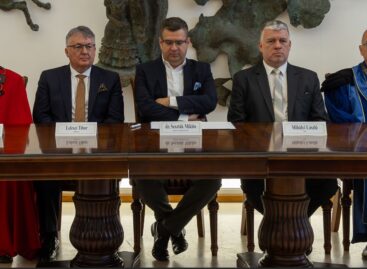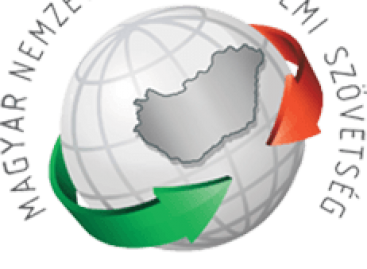Vision for the near future
Our magazine interviewed some of the more innovative actors in the commercial pálinka distillery market. The topic was: how did they adapt to the pandemic-induced crisis situation?

László Nagy
CEO
Kunság-Szesz
László Nagy, the CEO of Kunság-Szesz informed us that the closure of the HoReCa sector induced a 60-percent plunge in the company’s sales turnover in 2020. Consumption habits changed a little, sales of smaller-size products increased in grocery stores and tobacco shops, and online sales surged too.
Gergely Lakatos, the CEO of Panyolai Szilvórium Zrt. talked to us about the great influence of COVID-19 on consumption habits during the first wave of the pandemic. The majority of sales migrated to the online channel. Shopper preferences are strongly influenced by brand loyalty and price-sensitiveness. According to the CEO, illegal pálinka distilling must be fought as hard as possible.
Influences and rules

Péter Bárány
founder-brand owner
Magamnak főztem,
Forrás pálinka
Péter Bárány, founder and owner of Magamnak főztem and Forrás pálinka said that after the reopening in May, bar and restaurant owners were in for a surprise: those guests who used to drink pálinka before the pandemic now preferred different spirits. The former HoReCa market for pálinka has disappeared and this puts commercial distilleries in a difficult position. Only those have a chance for survival who are strong in the retail channel.
Mr Bárány believes that the new rules for distilling for home consumption won’t affect the commercial pálinka market.

Árpád Balássy
sales and
marketing director
DunaPro
Árpád Balássy, sales and marketing director of DunaPro spoke about how the on-trade channel disappeared completely last year; at the same time the retail channel was given greater emphasis. After the end of lockdown the company’s products produced good results. The director mentioned that 2020 would have been the first full year for their Márkházi pálinka in the market.
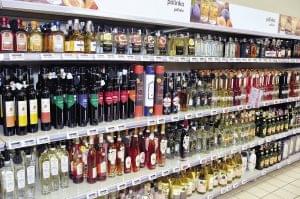
Consumer habits are perceived to have changed
New directions
Mr Nagy explained that 2020 was better than 2019 but worse than 2018 for them. They monitored the changes in the market environment and transformed their strategies in line with these. For instance the company speeded up its e-commerce entry and improved its social media presence.

Gergely Lakatos
CEO
Panyolai Szilvórium
Mr Lakatos revealed that their 2020 marketing strategy was heavily affected by the budget cut during the first wave of the pandemic – this was the time when they came out with the Silvorius herbal liqueur. The company reacted to the pandemic situation by launching its ‘pandemic-themed’ Stay at Home! and One and a Half Metre! pálinkas.
Mr Balássy said: the pandemic didn’t deter them from continuing to build Márkházi into a top pálinka brand. They now concentrate on retail sales instead of the HoReCa channel, offering tailor-made promotions to partners.
Mr Bárány told us that they have 4 pálinka brands in the portfolio and in the past few years they were focusing on the HoReCa channel only, so sales took a dive in 2020. In the summer they were busy with brand building for the Búzavirág, Pipacs and Levendula craft gins and expanding their distribution.

The question is how such a traditional product can be renewed
Vision for the future
Kunság-Szesz is of the opinion that premium products are more resistant to any kind of crisis. They keep on building the Mátyás brand. All of their pálinkas are made of the best fruits, which are carefully selected and supplied by Hungarian farmers only. Magamnak főztem and Forrás pálinka hopes that sales will start to grow in the spring. They feel that launching Búzavirág gin was done at just the right time. The company believes that pálinka works well in cocktails too, consumers simply need to get used to the idea.
DunaPro reckons that 2021 will still be about compromises, but they pay close attention to the sales channels that are accessible. They hope that with the changes in the tax imposed on pálinka distilled for home consumption, the pálinka market will become more transparent and controllable. The company believes in the power of marketing very much. Panyolai Szilvórium Zrt. shares the view that pálinka can only be modernised if new convictions and practices are established instead of the old ones, and if the young generation of pálinka makers is involved in decision-making. They think the government should give the sector – where the No.1 Hungaricum product is made – a vision, otherwise the situation will stay as it is: the size of the legal market is 1 million litres, while that of the black and grey market is minimum 30 million litres. //
Finding pálinka’s place
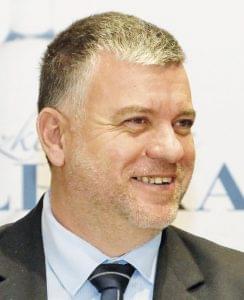
László Mihályi
president
National Council of Pálinka
László Mihályi, president of the National Council of Pálinka (PNT) analysed the current market situation for our magazine. He told: making progress in the HoReCa sector is very important. In terms of price commercial distilleries have limited space for manoeuvre. The public health product tax that was introduced a few years ago put extra burden on pálinka products. PNT hopes that the No.1 Hungaricum product, pálinka is important enough for the government to grant a state budget for promotional purposes – just like it happened with the wine sector.
Mr Mihályi believes that pálinka can’t really be modernised, as the law states that it can only be made of Hungarian fruit. Shopper needs keep changing and these have to be satisfied, obviously. Pálinka making is like cooking: every chef uses the same ingredients and tools, but the result is different. The president opines that using pálinka in cocktail is a form of modernisation. Plus PNT launched the Night of Pálinka event in 2019 to have a day every year when bars and restaurants give pálinka the centre stage. //
Related news
Szabolcsi apple pálinka was named the best of the year at the national pálinka competition
The apple pálinka of the NVMEN Pálinka Distillery in Szabolcs-Szatmár-Bereg…
Read more >A record number of entries were received for the Pálinka Bonbon of the Year-2025 competition
In Spain, annual consumer price inflation fell to 2.2 percent…
Read more >The 2025 National Pálinka and Törkölypálinka Competition has opened in Kisvárda
The 2025 National Pálinka and Törkölypálinka Competition was opened in…
Read more >Related news
András Tállai: “There is strong intent and potential for development in the sector”
András Tállai, state secretary of the Ministry of Agriculture talked…
Read more >Katalin Neubauer: “Strong state intervention isn’t a good idea in the long run”
We asked Katalin Neubauer, secretary general of the Hungarian National…
Read more >Dr Tamás Kozák: “High inflation casts a long shadow”
Our magazine asked Dr Tamás Kozák, general secretary of the…
Read more >
